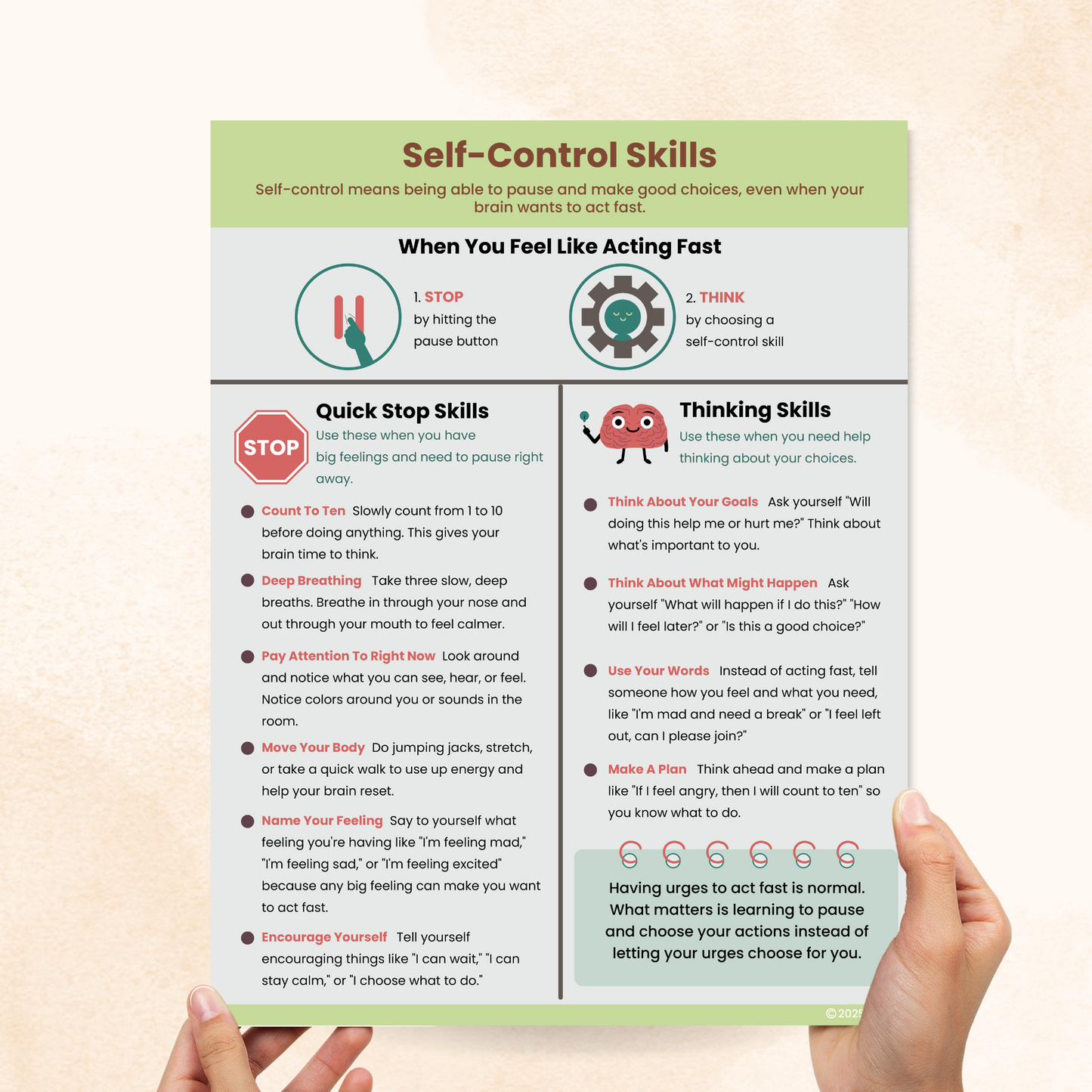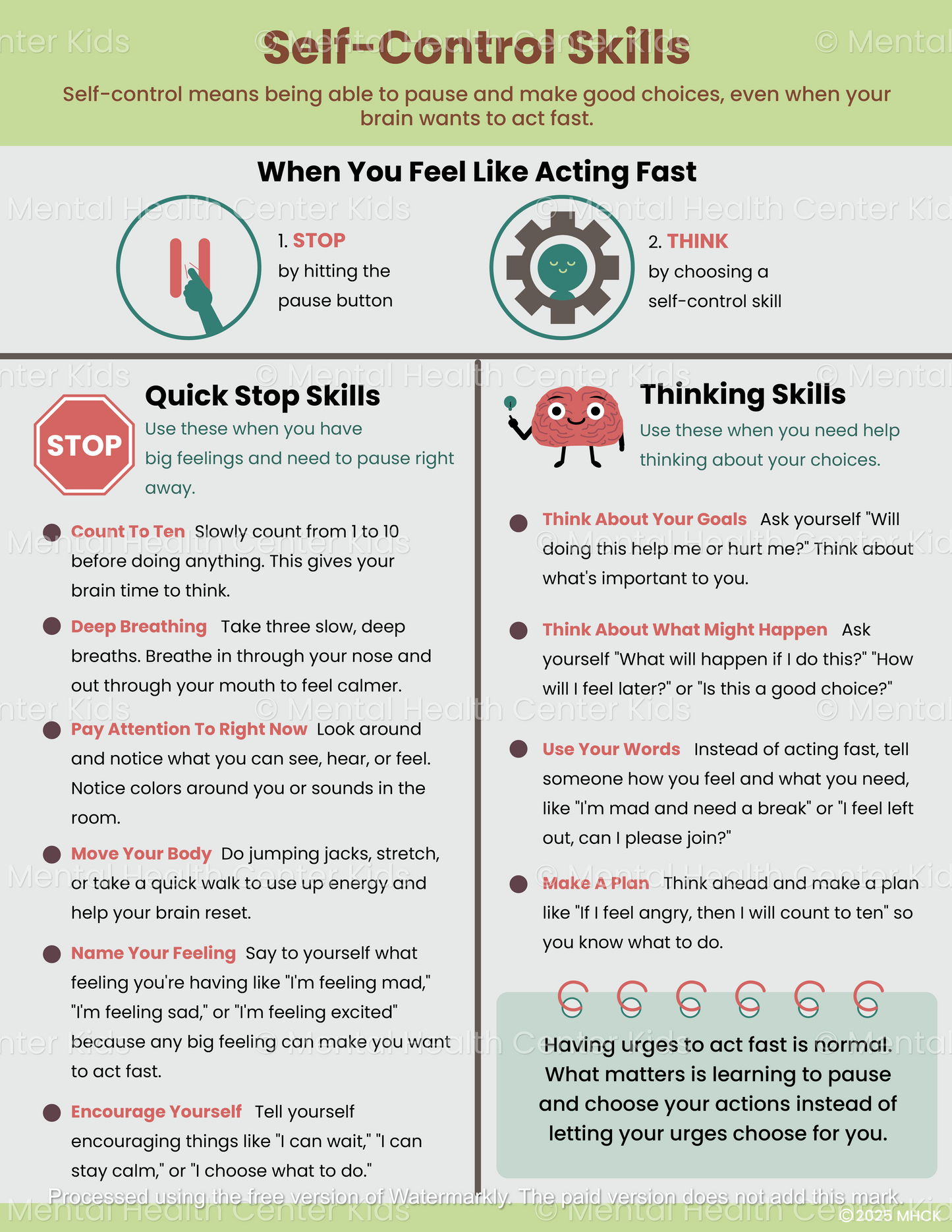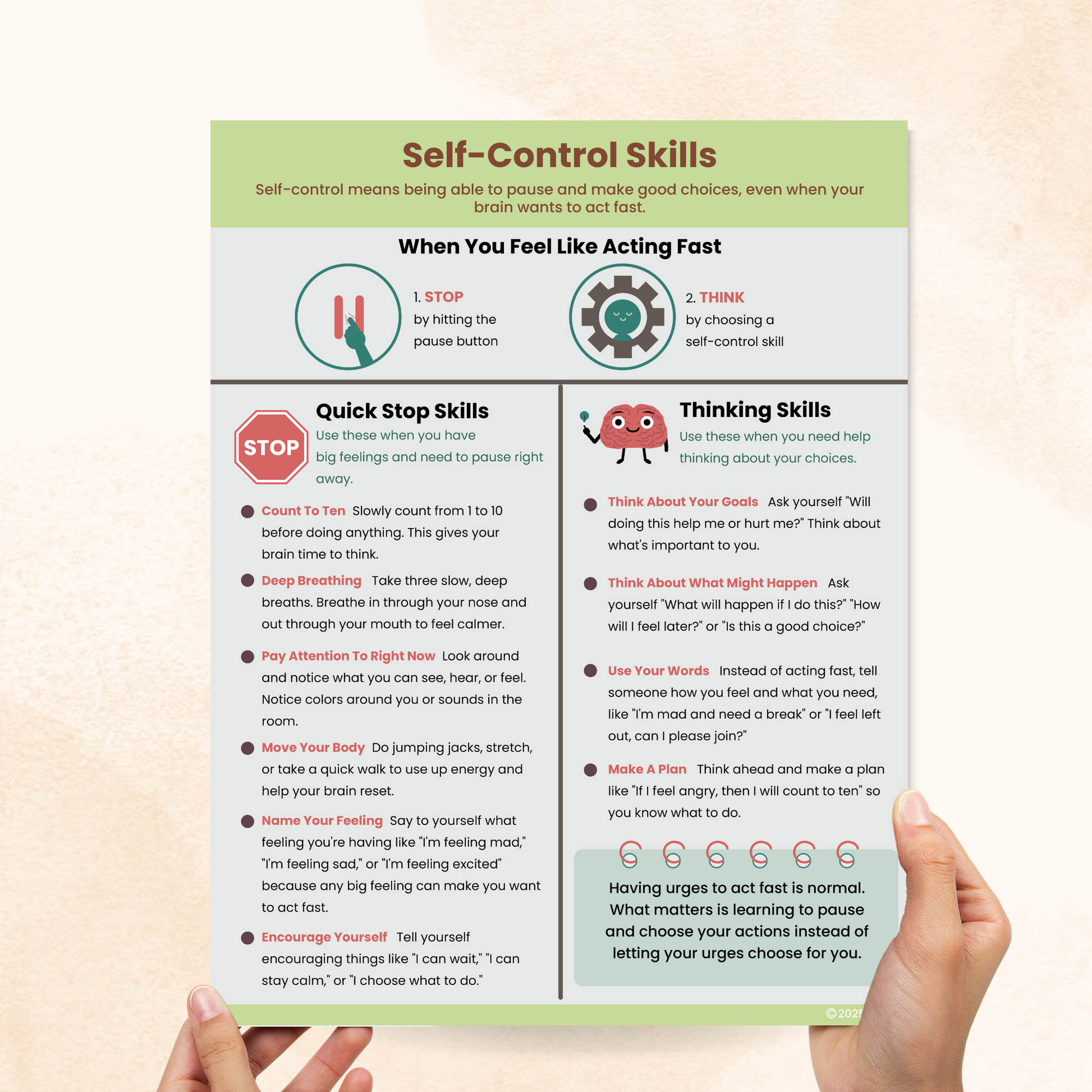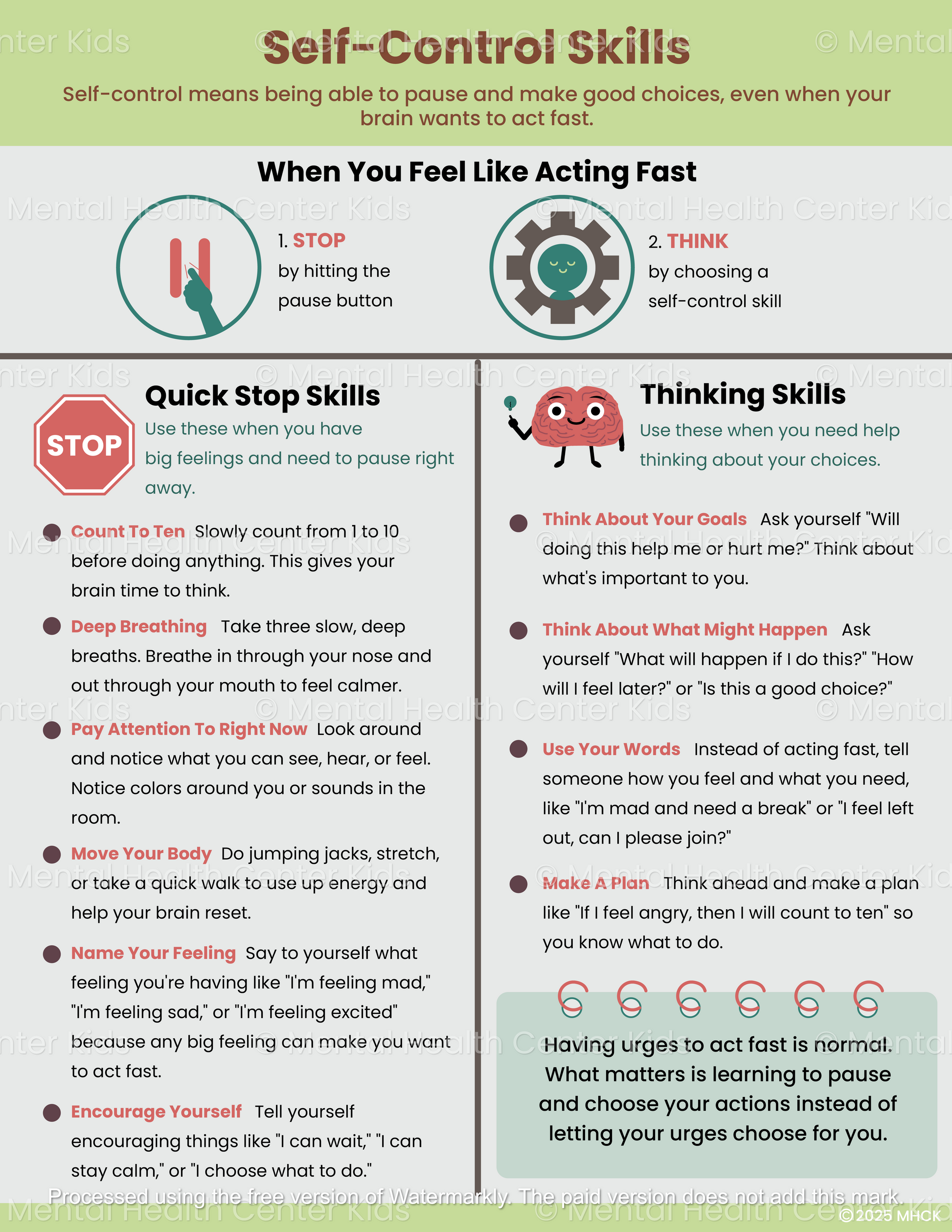Self-Control Skills (PDF)



Self-control is a skill that everyone develops over time, but for many clients, it can feel like an ongoing challenge. Some may act on impulse, while others understand consequences but may still struggle when emotions run high. The encouraging news is that with consistent strategies self-control can grow stronger over time.
The Self-Control Skills handout introduces two simple but helpful steps for managing impulses: stop and think. It provides simple “quick stop skills” like counting to ten, moving the body, naming feelings, taking deep breaths, and focusing on the present moment. “Thinking skills” guide users toward wiser choices by considering goals, thinking about consequences, and making a plan.
By using these strategies, young people learn that self-control isn’t about being perfect — it’s about taking a pause to choose a better response. Consistency is key: small habits, such as practicing patience during games or waiting before grabbing a snack, can strengthen willpower over time.
It’s also helpful to identify common “slip triggers,” like feeling tired, hungry, or rushed, and create plans to manage them. Caring adults can support this by modeling self-control themselves, setting up simple reminders, and celebrating progress together.
Depending on the level of self-control difficulties, our Tips To Improve Impulse Control handout can be used as an additional resource alongside this handout.
*This item is an instant digital download. A link to download your files will be emailed to you once payment is confirmed.
Want more resources like this? Check out our full catalog of coping skills worksheets and handouts.
References:
- Allemand, M., Job, V., & Mroczek, D. K. (2019). Self-control development in adolescence predicts love and work in adulthood. Journal of Personality and Social Psychology, 117(3), 621-634. https://doi.org/10.1037/pspp0000229
- Liu, Y., Di, S., Shi, Y., & Ma, C. (2022). Meaning in life and adolescent self-control: Effect of perceived social support and its gender differences. Frontiers in Psychology, 13. https://doi.org/10.3389/fpsyg.2022.1087668
- Willems, Y. E., Li, J., Bartels, M., & Finkenauer, C. (2024). Individual differences in adolescent self-control: The role of gene-environment interplay. Current Opinion in Psychology, 60, 101897. https://doi.org/10.1016/j.copsyc.2024.101897
- Yang, F., & Jiang, Y. (2022). Adolescent self-control and individual physical and mental health in adulthood: A Chinese study. Frontiers in Psychology, 13. https://doi.org/10.3389/fpsyg.2022.850192
- Instant digital download
- File: PDF
- Size: 8.5" x 11"




